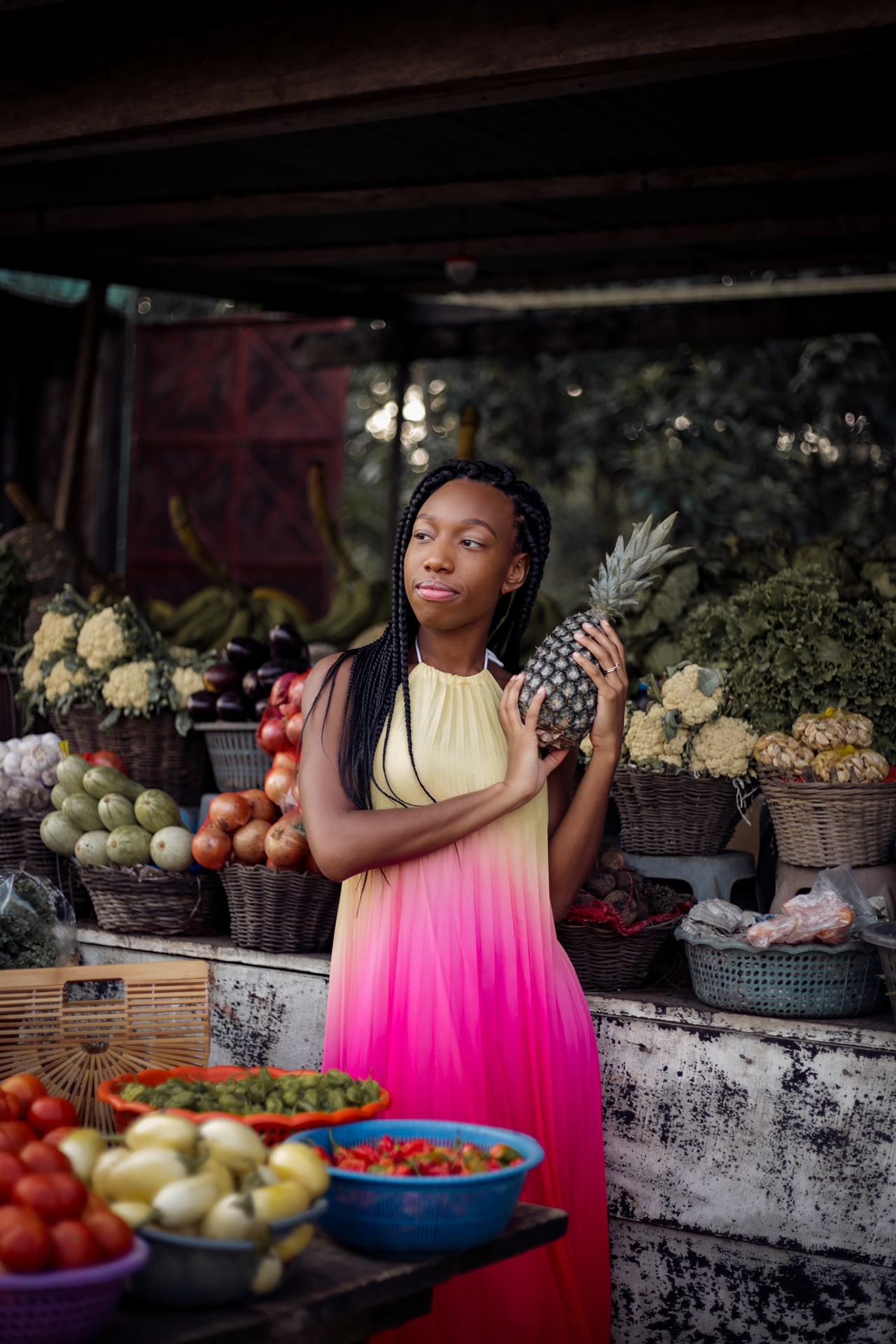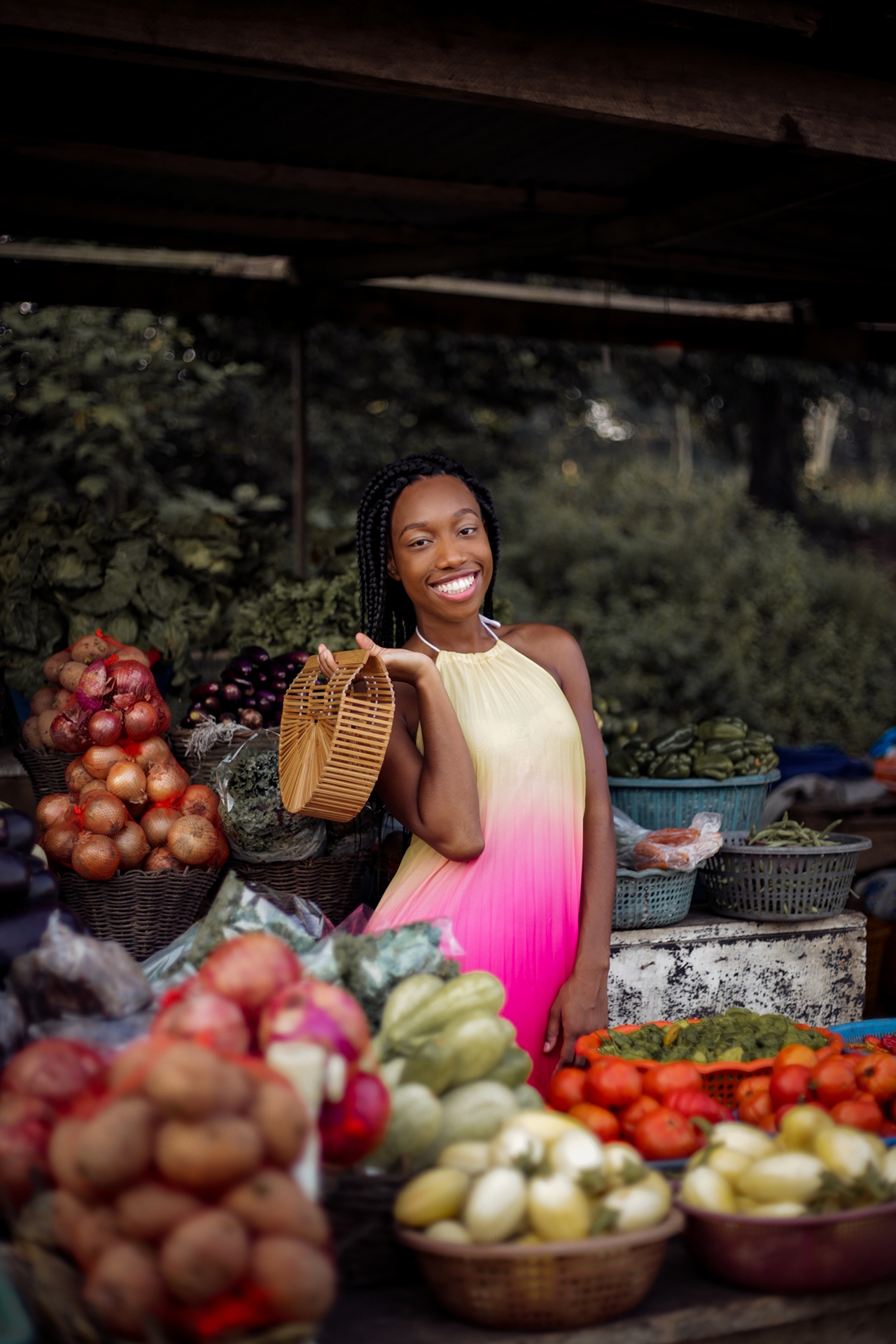
In a short span of 25 years I’ve lived in 4 different countries. Sounds a little crazy right lol? I’ve seen the first world, the third world and little stops in between. At each stop in my life’s journey I’ve gleaned some valuable gems along the way.
I’m well aquainted with the richness of American food and the convenience of one-stop mega shops like Walmart. I’ve danced to the beat of South African house music in Cape Town and gone for a traditional Braai. I’ve experienced the splendour of German Christmas markets when December rolls around. Presently, I’m living in Ghana where fresh fruit, coconut and energetic faith communities are plentiful.
Each country has taught me something different. Through the many twists and turns I thought it may be helpful to share some tips for anyone considering life abroad.
Understand the Currency/Get Yo Money Honey!
Knowing the value of a basic currency really goes a long way in understanding how the system works in a new place. I recommend using apps like Converter+ and XE Currency Converter Pro as tools to reference ever changing currencies. There’re a plethora of traps that come from not fully understanding how to use money in a new place.
Here are some important questions to consider:
Is bargaining a welcomed practice or are the prices listed as final and non-negotiable.
What are the country’s main imports/exports?
Is the country cash friendly or do people primarily pay with cards?
How does the government, and even every day people, view bribes?
One common downfall expats experience is overpaying for things. Unless you’re comfortably fluent in the local anguage and can mimic a native accent, people can tell tell if you’re not from around town. With this in mind, it’s super important that you’re aware of local prices for common goods and services….. lest you fall prey to people taking advantage of your ignorance.
Numbeo is a great website to peruse when analyzing different costs among countries. It provides a general overview of what to expect when going to a new country and allows you to compare data with your home country. It’s also worth noting that there’s usually a dramatic difference in prices depending on if you are living in a major city or a small town.
Another important thing to consider is your preferred choice for banking. You’ll most likely need to transfer money from your home country. Transferring money can be extremely expensive depending on your bank’s policies. Spend time researching different bank options and consider banks that people really trust.
*Have hard copies of your important documents (passport, visas, birth certificate, SOC etc.) because they will come in handy when setting up an account in a new country if you’re not a citizen.
Something I’ve found to be extremely helpful when living abroad are online banks. Companies like N26 and Transferwise offer AMAZING borderless accounts that make it easy to use money all over the world with minimal fees for withdraws and transactions. The best part is, you never have to set foot inside a bank.

Be patient with yourself and the existing systems in place.
On average it can take anywhere from 3-6 months to feel fully adjusted in a new country and up to 2 years to have a feeling of being “at home”.
There are three common phases most people go through when moving to a new place. At first most expats experience something similar to a “honeymoon phase”. The newness and fresh possibility found in your new home seem endless. You’re seeing places you’ve never seen before and doing things you’ve never done. You can even reinvent yourself if you choose! Everything seems to be ‘amazing’ in your newfound home, but the scales have not yet fallen from your eyes.
Fast forward a few months….
After the initial sense of wonder fades, disillusionment enters the scene. The harsh reality sets in about this new place. Internal tension often surmounts due to clearly felt differences in culture, food, climate and maybe even the sociopolitical culture.
All at once you realize, “We’re not in Kansas anymore”. At this phase you may become more acutely aware of your own expectations and how they are/aren’t being met in this new place. At this phase it’s important to not panic. Realize that frustrations are very much a part of the process of assimilation.
Not everything in a new country can be rationalized or viewed through the lenses that you’re used to. At this stage you’ll be challenged and stretched to see things through new lenses. You will work to find peace with the new place and all you thought you knew up until this point.
The final phase is acceptance (Thank God!). At last, some harmony is restored and you learn to develop a deeper tolerance and understanding about the new country. Adjusting to new environments takes time and work. Approach your new living circumstances with open-mindedness and a sense of humor, because some things won’t happen overnight.
Make Friends with Locals
Getting out may seem like a daunting task at times in a new country, especially if the language is new and the social scene is not what you’re are accused to. Still, meeting new people is often rewarding (….or at least you’ll have lots of interesting stories to tell lol). Putting yourself out there later develops into confidence as you become more comfortable in new environments and around different people.
Isolating yourself is the worst thing you can do in a new country. Any time I’m in an uber or public transportation I make it a point to talk to the drivers and other riders. So much cultural information is expressed in the seemingly ordinary stories and experiences shared by locals. I’ve learn so much from asking questions because the opinions of natives usually offer a raw unfiltered perspective.
Making friends with locals is also a great way to share your own culture. Just as you will have questions for locals, they will often have many questions for you. The media has created so many stereotypes and troupes about every culture and group on the planet. The more I travel the more I find that there’s so much misunderstanding about culture because people lack clear knowledge.
I also highly recommend meet-up.com as a great source for connecting with people where you live who have shared interests. I recently joined a book club in Accra that I discovered through Meet-up and it’s been a great source of fun for socializing as a new person in the city.
Stay Connected
Thanks to Facebook Messenger, Skype, Googlehangout, WhatsApp and Instagram Messages/Calls (just to name a few), family and friends can be an ocean away, but feel closer than ever. Use these tools to connect with loved ones. I can’t promise that it’ll be easy. Managing time differences between you and your home country can be a chore, but it’s worth it in the end.
In addition to staying connected to friends and family it may be helpful to also get connected with other expat communities and your home government’s offices abroad. Living abroad also brings about personal growth and change that people in your home country may or may not understand. Having other people who can relate to the expat experience can be refreshing in your journey as a person living abroad.
Organizations like InterNations.com and expats.org offer great ways to meet other people who are of the same nationality and also living in the country where you stay.
Lastly, I highly recommend having an unlocked phone. It really allows for freedom when traveling back to your home country and also doesn’t tie you financially to a strict plan. Talking is as easy as switching a sim card.
Nuances of Language Matter (even if the language is one you know).
Let me tell you a small tale about that time my husband and I spent twenty minutes searching the aisles for half-and-half at a grocery store in Germany. In the end we realized that it existed under a name that was something completely different lol. These are common experiences that expats often face.
Just this week my husband was looking for steel wool to clean our stove. After talking to a lady at the store he soon realized that here in Ghana it’s called “silver shine” or “silver sponge”. It’s kind of like how in Kenya people often refer to butter as Blue Band (which is actually the name of a brand, not the butter itself).
Understanding the subtle differences in how people communicate can go a long way when trying to communicate in a new place. A good friend of mine living in Ghana once recommended that I spend time just listening and studying how people converse. Do people talk more with their hands or their facial features? Are people direct or indirect? What are the common crutch words (The word “like” is an extremely common filler word in the U.S.). There’s so much to learn from how people talk and so much to be gained from listening.
Living abroad is a dynamic experience and there’s always something new to learn. Let me know some of your own experiences while abroad!! I’d love to hear about them. Oh and before I forget, the pics in this post were taken at a local market here in Accra. Outfit details are below!

Shop This Look
***Love to travel or interested in taking an odyssey of your own? Leave a comment below and share your own travel memories! Subscribe to my blog and get updates on new articles, inspiration, and style.


